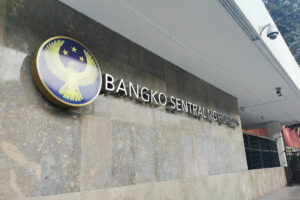THE Bangko Sentral ng Pilipinas (BSP) will likely cut rates in the third quarter, beginning its monetary easing cycle only after the Federal Reserve slashes its own policy rates, HSBC said.
In a note dated Aug. 2, HSBC Global Research said the Philippines has the least flexibility to diverge from the Fed in the Association of Southeast Asian Nations (ASEAN).
“Between Indonesia and the Philippines, the two ASEAN economies with current account deficits, we believe Indonesia has much more monetary policy freedom to move away from the Fed, whereas the Fed’s gravitational pull is stronger (perhaps even the strongest) in relation to the Philippines,” HSBC Global said.
The BSP extended its pause in June, keeping the key interest rate at 6.25%. The BSP has hiked borrowing costs by a total of 425 basis points (bps) between May 2022 and March 2023.
Meanwhile, the Fed hiked policy rates by 25 bps to 5.25-5.5% last week, bringing them to their highest level in more than two decades.
“We only expect the Philippines to cut policy rates after the Fed cuts its own. We expect the BSP to begin its easing cycle in the third quarter of 2024,” HSBC Global said.
The research unit is forecasting a 25-bp cut in the third quarter next year from the Monetary Board, followed by another 25-bp cut in the fourth quarter. This will bring the key policy rate to 5.75% at the end of 2024.
HSBC Global also expects the current account deficit to deteriorate in the coming years.
The BSP estimates the current account deficit at $4.3 billion, equivalent to 4.3% of gross domestic product (GDP), in the first quarter, up from $4 billion a year earlier.
“Not only is the Philippines a consumption-driven economy, but the government is embarking upon a much-needed and ambitious agenda of spending more than 5% of its GDP on public infrastructure and will, thus, demand a lot of materials from abroad, such as steel and technology,” HSBC said.
The government is planning to spend 5-6% of GDP on infrastructure until 2028.
Meanwhile, HSBC Global projects Philippine headline inflation to continue rising in the second half of 2024.
“The key here is the fact that beginning next year, the temporary tariff cuts on rice, coal, corn, and pork will expire, re-introducing another inflationary wave to the archipelago,” HSBC Global said.
Earlier this year, President Ferdinand R. Marcos, Jr. decided to extend Executive Order (EO) No. 171, which reduced the Most Favored Nation (MFN) tariff rate on swine meat, corn, rice, and coal until Dec. 31, 2023.
“We estimate the maximum impact of these tariff adjustments on inflation to be as much as 1.4 percentage points,” HSBC Global said.
Inflation has been declining since its peak in January. A BusinessWorld poll of 17 analysts last week yielded a median estimate of 4.9% for July inflation, settling at the upper end of the BSP’s 4.1-4.9% forecast for the month.
If realized, July would be the first time that inflation fell below 5% since the 4.9% posted in April 2022. The June reading was 5.4% while the July reading was 6.4%.
July inflation would also likely exceed the central bank’s annual 2-4% target range for a 16th straight month.
The Philippine Statistics Authority is scheduled to release the consumer price index (CPI) data on Aug. 4, Friday.
“We expect headline CPI to be tangent to the BSP’s upper-bound target range of 4% in the second half of 2024 — a level that will likely complicate the BSP’s timing of the rate cuts,” HSBC Global said.
It expects full-year inflation to hit 5.5% this year, before easing to 3.6% in 2024.
The BSP expects inflation to return to the 2-4% target range by the fourth quarter, with full-year inflation hitting 5.4% in 2023 and 2.9% in 2024.
“So, from the perspective of inflation, we expect the Philippines to have the most compelling reason to keep monetary policy tight,” HSBC Global said, adding that economic growth remains resilient as well.
“Currently, the Philippines is the fastest-growing economy in ASEAN, expanding at a rate in line with its historical trend but with consumption and investment seemingly defying gravity. This gives the BSP room to keep the monetary reins tight and steady,” it said. — Keisha B. Ta-asan

